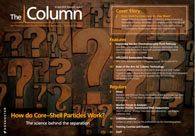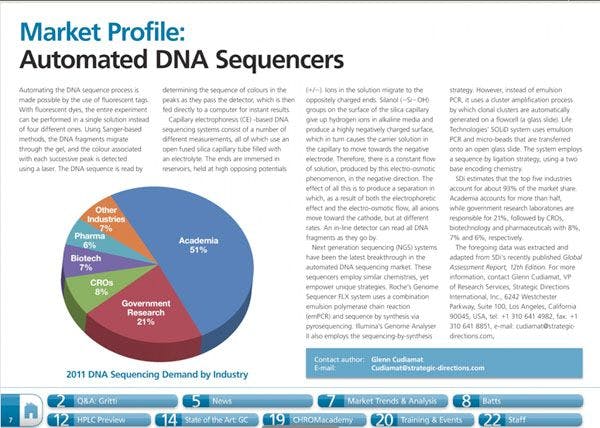Thermo Fisher partners with University of Birmingham
Thermo Fisher Scientific (California, USA) has announced the formation of a Technology Alliance Partner agreement with the University of Birmingham (Birmingham, UK) to further research in high-resolution accurate mass and triple quadrupole liquid chromatography?mass spectrometry (LC?MS).
Thermo Fisher Scientific (California, USA) has announced the formation of a Technology Alliance Partner agreement with the University of Birmingham (Birmingham, UK) to further research in high-resolution accurate mass and triple quadrupole liquid chromatography–mass spectrometry (LC–MS).
Thermo Fisher Scientific will work with scientists at the university to develop hardware and software for metabolomic analysis, develop high resolution mass spectrometry and gas-phase ion chemistry for top-down and bottom-up proteome analysis, and to promote training of graduate students.
“The University of Birmingham scientists share our drive to make the world healthier, cleaner and safer,” said Iain Mylchreest, VP, research and development, Thermo Fisher Scientific. “We look forward to a very productive collaboration with this innovative, creative group for advancing metabolomic and proteomic research.”
“We are excited to become Thermo Fisher Scientific’s first Technology Alliance Partner within Europe,” said Professor Adam Tickell, the University’s pro vice chancellor for research and knowledge transfer. “We anticipate that innovations from this research will translate directly into improved healthcare and environmental diagnostics. We are particularly excited by Thermo Fisher’s commitment to supporting graduate research.”
For more information please visit:
www.thermoscientific.com

A Matrix-Matched Semiquantification Method for PFAS in AFFF-Contaminated Soil
Published: April 14th 2025 | Updated: April 14th 2025Catharina Capitain and Melanie Schüßler from the Faculty of Geosciences at the University of Tübingen, Tübingen, Germany describe a novel approach using matrix-matched semiquantification to investigate per- and polyfluoroalkyl substances (PFAS) in contaminated soil.
Silvia Radenkovic on Building Connections in the Scientific Community
April 11th 2025In the second part of our conversation with Silvia Radenkovic, she shares insights into her involvement in scientific organizations and offers advice for young scientists looking to engage more in scientific organizations.












